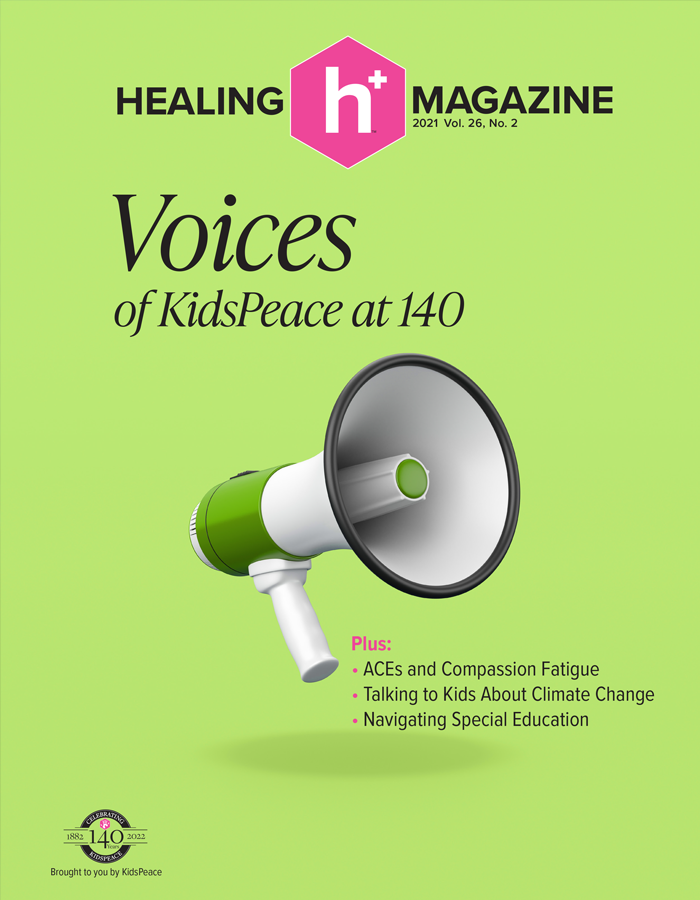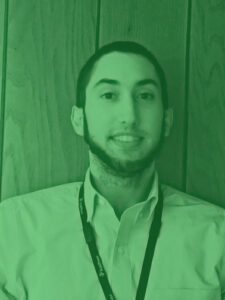 At KidsPeace, our mission statement explains how our goal is to give Hope, Help and Healing to children, adults and those who love them. As an employee that works directly with the children in mainly crisis situations, I strive to be more creative and effective than the day before. Typically, at KidsPeace every day will be something new and stimulating, exciting and impactful, difficult but rewarding, especially, when given the opportunity to make a difference in a child’s life. It’s truly remarkable.
At KidsPeace, our mission statement explains how our goal is to give Hope, Help and Healing to children, adults and those who love them. As an employee that works directly with the children in mainly crisis situations, I strive to be more creative and effective than the day before. Typically, at KidsPeace every day will be something new and stimulating, exciting and impactful, difficult but rewarding, especially, when given the opportunity to make a difference in a child’s life. It’s truly remarkable.
Before my time at KidsPeace, I always knew that working with children was my dream but it wasn’t until I started at the KidsPeace Berks Campus and began working with our children, that I instantly knew it was my passion! The people that work here are great and the culture at KidsPeace is family-oriented but the children have made the biggest impression on my career decision. The children are coming from broken homes, abusive relationships, depressing socioeconomic backgrounds and situations that are not meant for kids! Sadly, it is not their fault that they are in this position. It is our responsibility to provide a safe haven, a structured environment where they feel safe, and sometimes a friendly, compassionate hug while saying nothing more than “I am here for you, we will get through this together.”
Outside of KidsPeace, these children are given labels, not opportunities to be successful. They are told they are a waste of time, a waste of an education, or simply don’t deserve a chance. In reality, they are just misunderstood children, who should be given a fair and equal chance at life. Almost daily, these children will face some type of crisis situation which could be mentally, physically or emotionally challenging. Most of the children that we provide services for will face taxing obstacles from the minute they wake up to the moment they get to rest for the night. That is why the approach we take while caring for children with mental and behavior health challenges is so important. They need guidance, structure, accountability but they also need compassion, to know their voice is heard, a snack when they’re hungry and most importantly, they need to know and understand that we will not disappoint them or give up on them the way people in their past may have.
Overall, KidsPeace is like a garden bed and the children are all the different and unique flowers that blossom on their own time. Magic Johnson once said, “All kids need is a little help, a little hope and somebody who believes in them.” KidsPeace believes in them, and I do too.
Christian Burggraf is Head of Crisis Response at KidsPeace’s facility in Berks County, PA

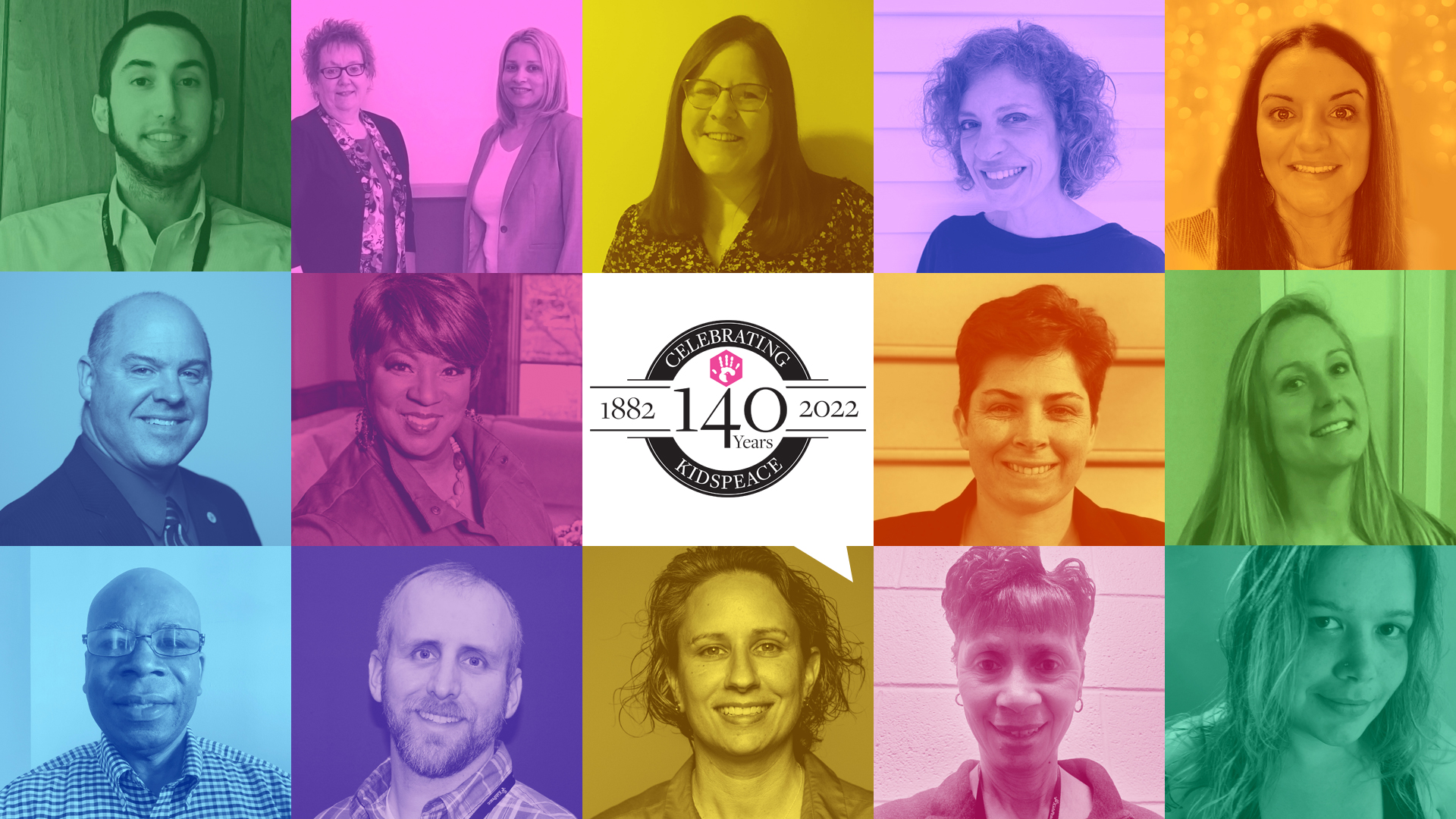
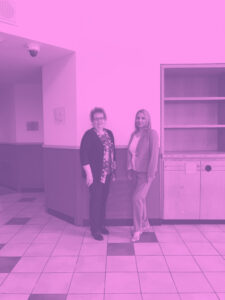 Clients and their families often come to
Clients and their families often come to 
 I started at KidsPeace in 1999 in our local foster care program. I loved having the opportunity to meet and work with so many different foster families and youth. I was inspired to see the impact our foster families have on the kids’ lives and the individual growth and progress made by each youth. I watched these youth, who had come from backgrounds of trauma and crisis, blossom and grow with the help and support of their foster families and my colleagues.
I started at KidsPeace in 1999 in our local foster care program. I loved having the opportunity to meet and work with so many different foster families and youth. I was inspired to see the impact our foster families have on the kids’ lives and the individual growth and progress made by each youth. I watched these youth, who had come from backgrounds of trauma and crisis, blossom and grow with the help and support of their foster families and my colleagues.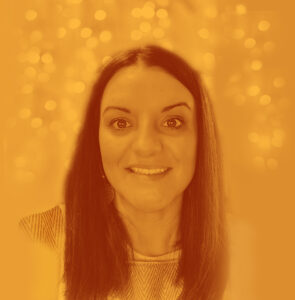 I began my education career in 2005, and as I think about the education environment at that time (staff, students, parents, and community), there is really no comparison to navigating the challenges we face with children in schools today.
I began my education career in 2005, and as I think about the education environment at that time (staff, students, parents, and community), there is really no comparison to navigating the challenges we face with children in schools today. 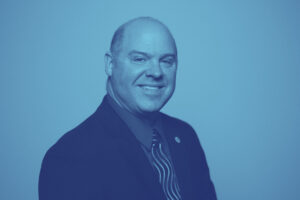
 It is a privilege to serve as a member of the Board of Associates for KidsPeace Georgia. I have the joy of working with others in my community who offer insight and assistance concerning projects at the campus. However, the best part of my role is just hanging out with all of my friends there. On a fairly regular basis, I get to participate in special events that take place on the campus. I’ve attended a nail painting party with the girls, holiday dinners, singing our favorite songs around the piano and special events that help to inspire and motivate the kids to discover their strengths, their gifts and talents.
It is a privilege to serve as a member of the Board of Associates for KidsPeace Georgia. I have the joy of working with others in my community who offer insight and assistance concerning projects at the campus. However, the best part of my role is just hanging out with all of my friends there. On a fairly regular basis, I get to participate in special events that take place on the campus. I’ve attended a nail painting party with the girls, holiday dinners, singing our favorite songs around the piano and special events that help to inspire and motivate the kids to discover their strengths, their gifts and talents.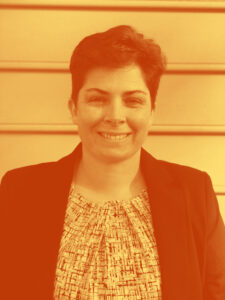 Over the last few years, children’s mental and behavioral health services have become harder than ever to locate here in Virginia, as well as across the United States. So many more kids are needing services and we have had to become creative in locating those services for our youth, especially during the pandemic.
Over the last few years, children’s mental and behavioral health services have become harder than ever to locate here in Virginia, as well as across the United States. So many more kids are needing services and we have had to become creative in locating those services for our youth, especially during the pandemic.
 Often when a person is in a mental health crisis they find themselves in a life-or-death situation. They generally feel helpless and stuck, and for some who can’t find help, the outcome could be devastating.
Often when a person is in a mental health crisis they find themselves in a life-or-death situation. They generally feel helpless and stuck, and for some who can’t find help, the outcome could be devastating.
 My journey with KidsPeace started over twenty years ago, and like most great adventures, there were twists and turns in the path along the way. Luckily, I have met some pivotal people who helped me in each new stage, as the work we do takes ongoing learning and continued personal growth. I’ve been blessed to work throughout the various services KidsPeace offers, which put me in the midst of many life-changing people and experiences.
My journey with KidsPeace started over twenty years ago, and like most great adventures, there were twists and turns in the path along the way. Luckily, I have met some pivotal people who helped me in each new stage, as the work we do takes ongoing learning and continued personal growth. I’ve been blessed to work throughout the various services KidsPeace offers, which put me in the midst of many life-changing people and experiences. Working at KidsPeace with youth that have endured trauma has been a wonderful experience.
Working at KidsPeace with youth that have endured trauma has been a wonderful experience. Have you ever thought that you were useless? Have you felt like dying and unwanted? Ten years, 3,650 days, 87,600 hours, and minutes you wouldn’t believe!! That’s how long my youth was taken from me – but that all changed the day I went into KidsPeace.
Have you ever thought that you were useless? Have you felt like dying and unwanted? Ten years, 3,650 days, 87,600 hours, and minutes you wouldn’t believe!! That’s how long my youth was taken from me – but that all changed the day I went into KidsPeace.